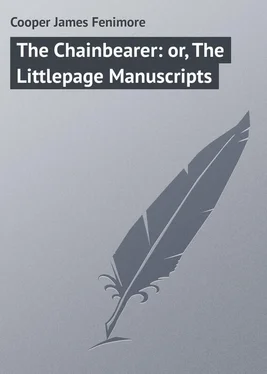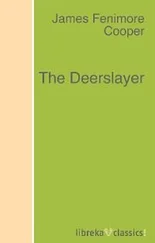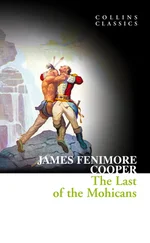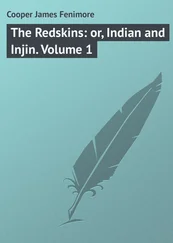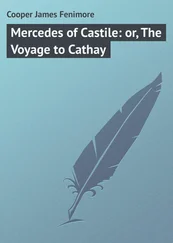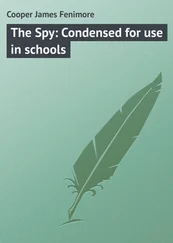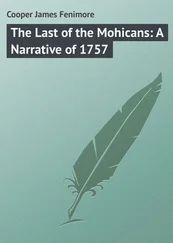James Cooper - The Chainbearer - or, The Littlepage Manuscripts
Здесь есть возможность читать онлайн «James Cooper - The Chainbearer - or, The Littlepage Manuscripts» — ознакомительный отрывок электронной книги совершенно бесплатно, а после прочтения отрывка купить полную версию. В некоторых случаях можно слушать аудио, скачать через торрент в формате fb2 и присутствует краткое содержание. Жанр: foreign_prose, на английском языке. Описание произведения, (предисловие) а так же отзывы посетителей доступны на портале библиотеки ЛибКат.
- Название:The Chainbearer: or, The Littlepage Manuscripts
- Автор:
- Жанр:
- Год:неизвестен
- ISBN:нет данных
- Рейтинг книги:5 / 5. Голосов: 1
-
Избранное:Добавить в избранное
- Отзывы:
-
Ваша оценка:
- 100
- 1
- 2
- 3
- 4
- 5
The Chainbearer: or, The Littlepage Manuscripts: краткое содержание, описание и аннотация
Предлагаем к чтению аннотацию, описание, краткое содержание или предисловие (зависит от того, что написал сам автор книги «The Chainbearer: or, The Littlepage Manuscripts»). Если вы не нашли необходимую информацию о книге — напишите в комментариях, мы постараемся отыскать её.
The Chainbearer: or, The Littlepage Manuscripts — читать онлайн ознакомительный отрывок
Ниже представлен текст книги, разбитый по страницам. Система сохранения места последней прочитанной страницы, позволяет с удобством читать онлайн бесплатно книгу «The Chainbearer: or, The Littlepage Manuscripts», без необходимости каждый раз заново искать на чём Вы остановились. Поставьте закладку, и сможете в любой момент перейти на страницу, на которой закончили чтение.
Интервал:
Закладка:
"I have heard your name mentioned as one of those who were at the Nest with my father when he was a young man, Susquesus," I resumed, "and when the Canada Indians attempted to burn the house."
"Good – Susquesus dere – young Dutch chief kill dat time."
"Very true – his name was Guert Ten Eyke; and my father and mother, and your old friend Colonel Follock, who was afterward major of our regiment, you will remember, they love his memory to this day, as that of a very dear friend."
"Dat all, love memory now?" asked the Indian, throwing one of his keenest glances at me.
I understood the allusion, which was to aunt Mary, whom I had heard spoken of as the betrothed, or at least as the beloved of the young Albanian.
"Not all; for there is a lady who still mourns his loss, as if she had been his widow."
"Good – do' squaw don't mourn fery long time. Sometime not always."
"Pray, Trueflint, do you happen to know any thing of a man called the Chainbearer? He was in the regiment, too, and you must have seen him in the war."
"Sartain – know Chainbearer – know him on war-path – know him when hatchet buried. Knew Chainbearer afore ole French war. Live in wood wid him – one of us . Chainbearer my friend."
"I rejoice to hear this, for he is also mine; and I shall be glad to come into the compact, as a friend of both."
"Good – Susquesus and young landlord friend of Chainbearer – good."
"It is good, and a league that shall not be forgotten easily by me. The Chainbearer is as honest as light, and as certain as his own compass, Trueflint – true, as yourself."
"'Fraid he make broom 'fore great while, too," said the Indian, expressing the regret I have no doubt he felt, very obviously in his countenance.
Poor old Andries! But for the warm and true friends he had in my father, Colonel Dirck, and myself, there was some danger this might be the case, indeed. The fact that he had served his country in a revolution would prove of little avail, that country being too poor to provide for its old servants, and possibly indisposed, had she the means. 7 7 This must pass for one of the hits the republic is exposed to, partly because it deserves them, and partly because it is a republic. One hears a great deal of this ingratitude of republics, but few take the trouble of examining into the truth of the charge, or its reason, if true. I suppose the charge to be true in part, and for the obvious reason that a government founded on the popular will, is necessarily impulsive in such matters, and feels no necessity to be just, in order to be secure. Then, a democracy is always subject to the influence of the cant of economy, which is next thing to the evil of being exposed to the waste and cupidity of those who take because they have the power. As respects the soldiers of the revolution, however, America, under the impulsive feeling, rather than in obedience to a calm, deliberate desire to be just, has, since the time of Mr. Mordaunt Littlepage, made such a liberal provision for pensioning them, as to include a good many of her enemies, as well as all her friends. – Editor.
I say this without intending to reflect on either the people or the government; for it is not easy to make the men of the present day understand the deep depression, in a pecuniary sense, that rested on the land for a year or two after peace was made. It recovered, as the child recovers from indisposition, by the vigor of its constitution and the power of its vitality; and one of the means by which it recovered, was by turning to the soil, and wielding the sickle instead of the sword. To continue the discourse:
"The Chainbearer is an honest man, and, like too many of his class, poor," I answered; "but he has friends; and neither he nor you, Sureflint, shall be reduced to that woman's work without your own consent, so long as I have an unoccupied house, or a farm, at Ravensnest."
Again the Indian manifested his sense of my friendship for him by that passing gleam on his dark face; and again all signs of emotion passed slowly away.
"How long since see him?" he asked me suddenly.
"See him – the Chainbearer, do you mean? I have not seen him, now, for more than a twelvemonth; not since we parted when the regiment was disbanded."
"Don't mean Chainbearer – mean him ," pointing ahead – "house, tree, farm, land, Nest."
"Oh! How long is it since I saw the patent? I never saw it, Sureflint; this is my first visit."
"Dat queer! How you own land, when nebber see him?"
"Among the pale-faces we have such laws, that property passes from parent to child; and I inherit mine in this neighborhood, from my grandfather, Herman Mordaunt."
"What dat mean, 'herit? How man haf land, when he don't keep him?"
"We do keep it, if not by actually remaining on the spot, by means of our laws and our titles. The pale-faces regulate all these things on paper, Sureflint."
"T'ink dat good? Why no let man take land where he want him, when he want him? Plenty land. Got more land dan got people. 'Nough for ebberybody."
"That fact makes our laws just; if there were not land enough for everybody, these restrictions and divisions might seem to be, and in fact be, unjust. Now, any man can have a farm, who will pay a very moderate price for it. The state sells, and landlords sell; and those who don't choose to buy of one can buy of the other."
"Dat true 'nough; but don't see need of dat paper. When he want to stay on land, let him stay; when he want to go somewhere, let 'noder man come. What good pay for betterment?"
"So as to have betterments. These are what we call the rights of property, without which no man would aim at being anything more than clad and fed. Who would hunt, if anybody that came along had a right to pick up and skin his game?"
"See dat well 'nough – nebber do; no, nebber. Don't see why land go like skin, when skin go wid warrior and hunter, and land stay where he be."
"That is because the riches of you red men are confined to movable property, and to your wigwams, so long as you choose to live in them. Thus far, you respect the rights of property as well as the pale-faces; but you must see a great difference between your people and mine! between the red man and the white man?"
"Be sure, differ; one strong, t'oder weak – one rich, t'oder poor – one great, t'oder little – one drive 'way, t'oder haf to go – one get all, t'oder keep nuttin' – one march large army, t'oder go Indian file, fifty warrior, p'raps — dat reason t'ing so."
"And why can the pale-faces march in large armies, with cannon, and horses, and bayonets, and the red man not do the same?"
"Cause he no got 'em – no got warrior – no got gun – no got baggonet – no got nuttin'."
"You have given the effect for the cause, Sureflint, or the consequences of the reason for the reason itself. I hope I make you understand me. Listen, and I will explain. You have lived much with the white men, Susquesus, and can believe what I say. There are good, and there are bad, among all people. Color makes no difference in this respect. Still, all people are not alike. The white man is stronger than the red man, and has taken away his country, because he knows most."
"He most, too. Count army, den count war-trail; you see."
"It is true the pale-faces are the most numerous, now; but once they were not. Do not your traditions tell you how few the Yangeese were, when they first came across the salt lake?"
"Come in big canoe – two, t'ree full – no more."
"Why then did two or three shipfuls of white men become so strong as to drive back from the sea all the red warriors, and become masters of the land? Can you give a reason for that?"
"'Cause he bring fire-water wid him, and red man big fool to drink."
Читать дальшеИнтервал:
Закладка:
Похожие книги на «The Chainbearer: or, The Littlepage Manuscripts»
Представляем Вашему вниманию похожие книги на «The Chainbearer: or, The Littlepage Manuscripts» списком для выбора. Мы отобрали схожую по названию и смыслу литературу в надежде предоставить читателям больше вариантов отыскать новые, интересные, ещё непрочитанные произведения.
Обсуждение, отзывы о книге «The Chainbearer: or, The Littlepage Manuscripts» и просто собственные мнения читателей. Оставьте ваши комментарии, напишите, что Вы думаете о произведении, его смысле или главных героях. Укажите что конкретно понравилось, а что нет, и почему Вы так считаете.
